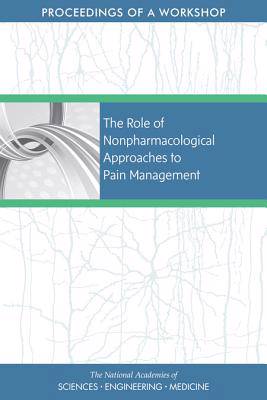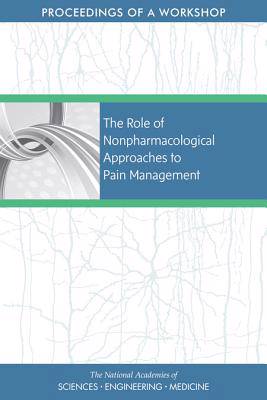
- Afhalen na 1 uur in een winkel met voorraad
- Gratis thuislevering in België vanaf € 30
- Ruim aanbod met 7 miljoen producten
- Afhalen na 1 uur in een winkel met voorraad
- Gratis thuislevering in België vanaf € 30
- Ruim aanbod met 7 miljoen producten
The Role of Nonpharmacological Approaches to Pain Management
Proceedings of a Workshop
National Academies of Sciences Engineering and Medicine, Health and Medicine Division, Board on Global Health, Board on Health Sciences Policy, Global Forum on Innovation in Health Professional Education, Forum on Neuroscience and Nervous System DisordersOmschrijving
Pain is a leading cause of disability globally. The dramatic increase in opioid prescriptions within the past decade in the United States has contributed to the opioid epidemic the country currently faces, magnifying the need for longer term solutions to treat pain. The substantial burden of pain and the ongoing opioid crisis have attracted increased attention in medical and public policy communities, resulting in a revolution in thinking about how pain is managed. This new thinking acknowledges the complexity and biopsychosocial nature of the pain experience and the need for multifaceted pain management approaches with both pharmacological and nonpharmacological therapies.
The magnitude and urgency of the twin problems of chronic pain and opioid addiction, combined with the changing landscape of pain management, prompted the National Academies of Sciences, Engineering, and Medicine to convene a workshop on December 4-5, 2018, in Washington, DC. The workshop brought together a diverse group of stakeholders to discuss the current status of nonpharmacological approaches to pain management, gaps, and future directions. This publication summarizes the presentations and discussions from the workshop.
Specificaties
Betrokkenen
- Auteur(s):
- Uitgeverij:
Inhoud
- Aantal bladzijden:
- 138
- Taal:
- Engels
Eigenschappen
- Productcode (EAN):
- 9780309490917
- Verschijningsdatum:
- 23/06/2019
- Uitvoering:
- Paperback
- Formaat:
- Trade paperback (VS)
- Afmetingen:
- 152 mm x 229 mm

Alleen bij Standaard Boekhandel
Beoordelingen
We publiceren alleen reviews die voldoen aan de voorwaarden voor reviews. Bekijk onze voorwaarden voor reviews.











